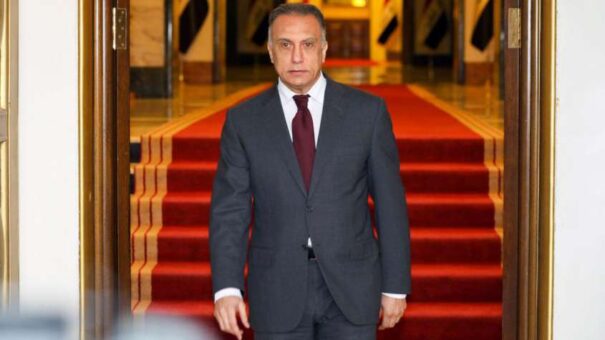
Iraq to Play a Major Role at Jeddah Summit
|
الاستماع للمقال صوتياً
|
WHIA – Iraq
Iraqi Prime Minister, Mustafa Al-Kazemi, was able to prove his country’s leading role in the Middle East through a policy of balancing and extending hands to the neighboring countries in the region. Thus, he gained the confidence of his counterpart leaders in the region, as well as the United States, which makes Iraq witness its most credential moment.
This is evidently reflected in the peace summits, conferences, and conflict resolutions that have been held since May of 2020. However, Al-Kazemi has a clear vision based on “zeroing” the problems that Iraq inherited from the disastrous policies of former prime ministers, especially in the period between 2006 – 2014.
Last year, Iraq organized and hosted the Baghdad Conference for Cooperation and Partnership with the leaders of Jordan, France, Qatar, Kuwait, the United Arab Emirates, Egypt, Turkey, Saudi Arabia, and Iran. The conference rose a crucial role in addressing issues of security, economy, environment, and cooperation.
Jeddah summit will be a vehicle for Iraq to increase their role in foreign policy and to gain more influence as a pivotal nation, stemming from Iraq’s ability to gather rivals through a face-to-face meeting, such as the negotiations that were launched recently in Baghdad, where five rounds of a mediative talks were held between Iranian and Saudi officials in Iraq, since both Iran and Saudi Arabia share borders with Iraq.
The fifth round of negotiations last April brought Al-Kazemi to state that he was convinced “an agreement will soon be made” between Riyadh and Tehran, the two conflicted powers that constantly blame each other most for damaging the Middle East.
Iraq received an official invitation from King Salman bin Abdulaziz to participate in Gulf Cooperation Council (GCC) at Jeddah summit. Iraq hopes to discuss issues of challenges and crises facing the MENA region countries and the world with the engagement of the leaders of Egypt, Jordan, and the United States of America.
Some of the most notable challenges plaguing the globe and the Middle East, in particular, include the vital sects of energy, food security, environmental concerns, and joint coordination.
The past few months have opened huge controversy in the Iraqi media, where tens of misleading reports over the upcoming Jeddah summit has become the norm. Some of the main criticisms of the summit in the Iraqi media to include that the summit seeks to create a status of normalization with Israel, and a lightened situation between Tel Aviv and Baghdad. These accusations were refuted by Al-Kazemi, who said that “these rumors are entirely untruthful.” he added: they are an attempt to distance Iraq from the prominent role in the region” and that “this government needs to carry out its tasks to serve the people and attract investments for the benefit of Iraq.”
Al-Kazemi unequivocally stated, “Iraq’s position on the Palestinian issue is consistent and clear. We do not intend and will continue to not take part in any axis or alliance in the region. Iraq maintains its balanced policy with its neighbors and its surroundings based on its national and humanitarian principles.”
Iraq opposition’s armed forces and their pro-Iranian media networks primarily rely on the rhetoric that intimidation, and accusations of alliances with Israel, as comprehensive structured policy to bring down their political opponents and claim that they are violating the official Iraqi decision regarding Palestinian- Israeli’s conflict.
In response, the Iraqi parliament recently passed a law that “criminalize normalization with Israel” with the support of Shiite cleric Muqtada al-Sadr.
Al-Kazemi proceeds to expand on Iraq restoring its pivotal role in the region, whether through mutual political views, support stabilization, or/and by the prevention of potential dangers in light of armed groups possessing drones and weapons that can threaten the neighbor states.
Al-Kazemi stated: “Today we live in a different world, not only at the level of technological developments, but also at the expected role of governments. International relations and common regional interests have become a good reason to provide projects and address unemployment, desertification, and the environment. The solution was to open up to the world so that Iraq quickly transformed from an isolation to full capacity in international relations”.
Translated by Husam Ramadan
WHiA intern
